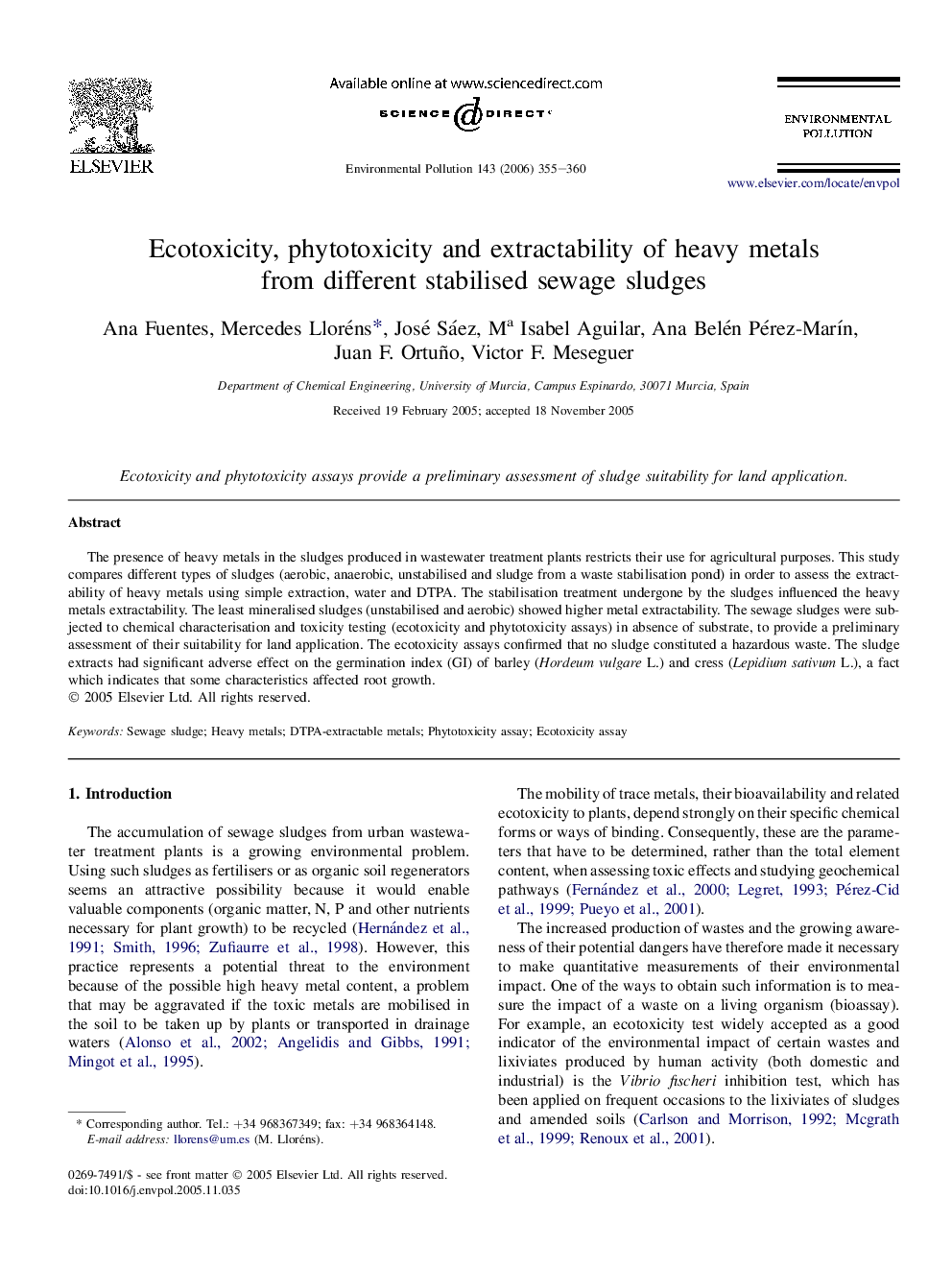| Article ID | Journal | Published Year | Pages | File Type |
|---|---|---|---|---|
| 4427548 | Environmental Pollution | 2006 | 6 Pages |
The presence of heavy metals in the sludges produced in wastewater treatment plants restricts their use for agricultural purposes. This study compares different types of sludges (aerobic, anaerobic, unstabilised and sludge from a waste stabilisation pond) in order to assess the extractability of heavy metals using simple extraction, water and DTPA. The stabilisation treatment undergone by the sludges influenced the heavy metals extractability. The least mineralised sludges (unstabilised and aerobic) showed higher metal extractability. The sewage sludges were subjected to chemical characterisation and toxicity testing (ecotoxicity and phytotoxicity assays) in absence of substrate, to provide a preliminary assessment of their suitability for land application. The ecotoxicity assays confirmed that no sludge constituted a hazardous waste. The sludge extracts had significant adverse effect on the germination index (GI) of barley (Hordeum vulgare L.) and cress (Lepidium sativum L.), a fact which indicates that some characteristics affected root growth.
